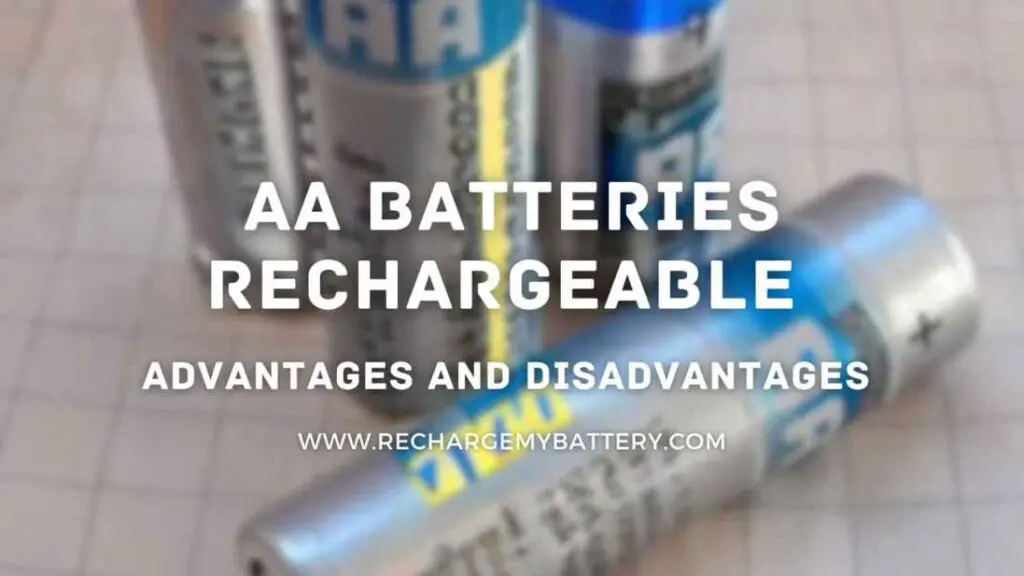In this article, we will explore the rechargeable batteries that you should avoid using and the reasons behind them.
Rechargeable batteries have become a popular choice for powering various electronic devices due to their cost-effectiveness and reduced environmental impact. However, not all rechargeable batteries are created equal. Let’s discuss them in detail.
Importance of Rechargeable Batteries
Rechargeable batteries offer several benefits over their disposable counterparts. They are reusable, which helps to reduce waste and conserve natural resources. Additionally, they can save you money in the long run as you don’t have to keep purchasing disposable batteries.
However, it’s crucial to be aware of the types of rechargeable batteries that are best suited for different devices and applications.
Types of Rechargeable Batteries
There are several types of rechargeable batteries available in the market, but three of the most common ones are:
- Lithium-ion batteries
- Nickel-metal hydride (NiMH) batteries
- Nickel-cadmium (NiCd) batteries
1. Lithium-ion batteries
Lithium-ion batteries are widely used in portable electronic devices due to their high energy density and long cycle life. They are commonly found in smartphones, laptops, and cameras.
2. Nickel-metal hydride (NiMH) batteries
NiMH batteries are another popular choice for powering various devices. They offer a higher capacity compared to NiCd batteries and are often used in digital cameras, toys, and cordless phones.
3. Nickel-cadmium (NiCd) batteries
NiCd batteries, although less common nowadays, are still used in some applications such as emergency lighting and power tools.
Rechargeable Batteries to Avoid
While rechargeable batteries offer many advantages, certain types should be avoided. These include:
- Zinc-carbon batteries
- Alkaline batteries
- Non-rechargeable lithium batteries
1. Zinc-carbon batteries
These are inexpensive but have a short lifespan and limited capacity. They are not designed for recharging and may leak or burst if improperly used.
2. Alkaline batteries
Despite being widely available and inexpensive, are also not intended for recharging. Attempting to recharge them can lead to leakage, reduced performance, or even the risk of explosion.
3. Non-rechargeable lithium batteries
Non-rechargeable lithium batteries, such as lithium coin cells, are not suitable for recharging and can pose safety hazards if mishandled. These batteries are commonly found in devices like watches, calculators, and key fobs.
Reasons to Avoid Using Certain Rechargeable Batteries
There are several reasons why it is important to avoid using certain rechargeable batteries.
- Safety hazards are one concern, as improperly charging or mishandling batteries can lead to overheating, leaking, or even explosions.
- Performance issues are another factor to consider. Non-rechargeable batteries may not hold a charge as effectively as dedicated rechargeable batteries, resulting in reduced device performance and shorter run times.
- Furthermore, some rechargeable batteries, like zinc-carbon or alkaline batteries, have a negative environmental impact. They contain toxic chemicals that can contaminate the environment if not disposed of properly.
Choosing the Right Rechargeable Batteries
To ensure the optimal performance and safety of your devices, it’s essential to choose the right rechargeable batteries. Consider factors such as battery chemistry, capacity, and voltage requirements. Reputable brands known for producing reliable rechargeable batteries include Duracell, Panasonic, and Energizer.
Proper Usage and Care of Rechargeable Batteries
To maximize the lifespan and performance of rechargeable batteries, it’s important to follow best practices for charging and discharging. Avoid overcharging or fully depleting the battery, as this can shorten its lifespan. Additionally, store and handle batteries in a cool, dry place, away from direct sunlight and extreme temperatures.
Recycling and Disposal of Rechargeable Batteries
When rechargeable batteries reach the end of their life cycle, it’s crucial to recycle them properly to minimize their environmental impact. Many electronics retailers and recycling centers offer recycling programs for rechargeable batteries. Recycling helps to recover valuable metals and prevents harmful chemicals from entering the environment.
Conclusion
Rechargeable batteries are a great option for powering various devices, but not all rechargeable batteries are suitable for every purpose. Avoid using certain rechargeable batteries like zinc-carbon, alkaline, and non-rechargeable lithium batteries, as they can pose safety hazards, suffer from performance issues, or harm the environment.
Choose the right rechargeable batteries based on the device’s requirements and follow proper usage, care, and disposal guidelines to ensure optimal performance and minimize environmental impact.
Thank you for reading it.


